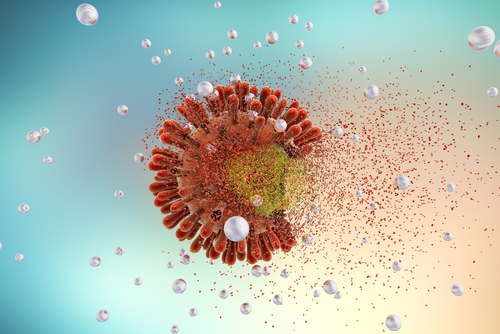Novel compound found to suppress HIV effectively
IANS Oct 20, 2017
Scientists have shown that a novel compound effectively suppresses production of HIV in chronically infected cells and prevents viral rebound.

The findings published online in the journal Cell Reports could open the door to a new approach to curing HIV infections."No other anti-retroviral used in the clinic today is able to completely suppress viral production in infected cells in vivo," said lead researcher Susana Valente, Associate Professor at The Scripps Research Institute's Florida campus."When combining this drug with the standard cocktail of anti-retrovirals used to suppress infection in humanised mouse models of HIV-1 infection, our study found a drastic reduction in virus RNA present - it is really the proof-of-concept for a 'functional cure,'" Valente said.
The new approach, called "Block-and-Lock", blocks reactivation of the virus in cells, even during treatment interruptions, and locks HIV into a durable state of latency.Valente and her colleagues used a derivative of a natural compound called didehydro-Cortistatin A (dCA)."Combining dCA with anti-retroviral therapy accelerates HIV-1 suppression and prevents viral rebound after treatment interruption, even during strong cellular activation," Valente said."It's important to note that our study uses the maximum tolerable dose of the drug - with virtually no side effects," Valente said.
The scientists studied the combination therapy in a mouse model of HIV latency and persistence. Once the combined treatment regimen was halted, viral rebound was delayed up to 19 days, compared with just seven days in mouse models receiving only anti-retroviral treatment.
-
Exclusive Write-ups & Webinars by KOLs
-
Daily Quiz by specialty
-
Paid Market Research Surveys
-
Case discussions, News & Journals' summaries